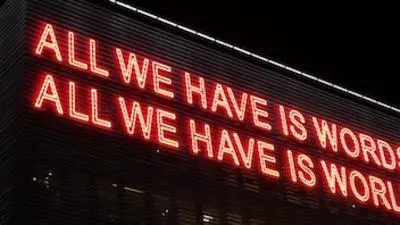Why The World Looks The Same In Any Language
John McWhorter
About the Course
Mandarin Chinese has no conditional tense, the Pirahã language has no numbers or color terms. The Kawesqar of South America have no way of demarcating the future and the Manambu tribe on New Guinea have only one word to denote eating, drinking and inhaling.
How much do these differences really matter? According to Benjanin Lee Whorf, the early C20th linguist, languages shape how their speakers perceive and conceptualize the world. If this is true, major differences between languages should correlate with major differences between the way those language communities perceive and reason about the world. For Whorf, language exerts a profound influence on perception, thought and culture.
In this eye-opening course, linguist John McWhorter argues that this claim is both dangerous and largely wrong. Drawing on case studies from around the world, McWhorter makes the case that linguistic effects on perception are insignificant, many linguistic features are arbitrary and that Whorfianism can lead to simplistic and often racist conclusions.
By the end of this course, you will have learnt:
- How Whorf developed his original hypothesis and how his ideas persist.
- What the latest psychological research tells us about the relation between language and cognition.
- How certain linguistic features don’t correlate with cultural characteristics.
- How old languages differ from younger languages like creoles.
- Why, for McWhorter, culture demonstrates diversity, but languages demonstrate our similarity.
Through video lectures, questions and suggested reading discover John McWhorter's ideas about the relationship between language, perception and culture. Share your ideas and support your learning through our discussion boards and test your knowledge through an end of course assessment.
IAI Academy courses are designed to be challenging but accessible to the interested student. No specialist knowledge is required.
About the Instructor
-
John McWhorter
A linguist and cultural commentator, McWhorter is Associate Professor of English and Comparative Literature at Columbia University. He is the author of many popular and academic books including Words on the Move, The Power of Babel: A Natural History of Language and Talking Back, Talking Black. He is a contributing editor at The Atlantic and host of the Lexicon Valley podcast.
Course Syllabus
-
Part One: Against WhorfianismFrom Chinese Mandarin to the Manambu of New Guinea, McWhorter explores linguistic variation and the extent to which it influences culture and cognition.
-
Part Two: The Diversity of Culture and Unity of LanguageFrom the quirks of old European languages to the emergence of new creoles, McWhorter shows how linguistic features evolve in complex and arbitrary ways.
Suggested Further Readings
- McWhorter, J., The Language Hoax: Why the World Looks the Same in Any Language, (Oxford: Oxford University Press, 2014).
- Whorf, B. L., Language, Thought, and Reality: Selected Writings of Benjamin Lee Whorf, (Cambridge, MA: MIT Press, 1956).
- Deutscher, G., Through the Language Glass: Why the World Looks Different in Other Languages, (New York: Metropolitan Books, 2010).
- Everett, D. L., Don’t Sleep, There Are Snakes: Life and Language in the Amazonian Jungle, (New York: Vintage, 2008).
- Boroditsky, L., “How Language Shapes Thought,” Scientific American, 304(2), (2011), pp. 62–65.
- Pinker, S., The Language Instinct: How the Mind Creates Language, (New York: William Morrow and Company, 1994).
Explore Further
John McWhorter's articles for The Atlantic.
John McWhorter's Lexicon Valley podcast.


